Rob Webster: The old mindset ain’t going to work
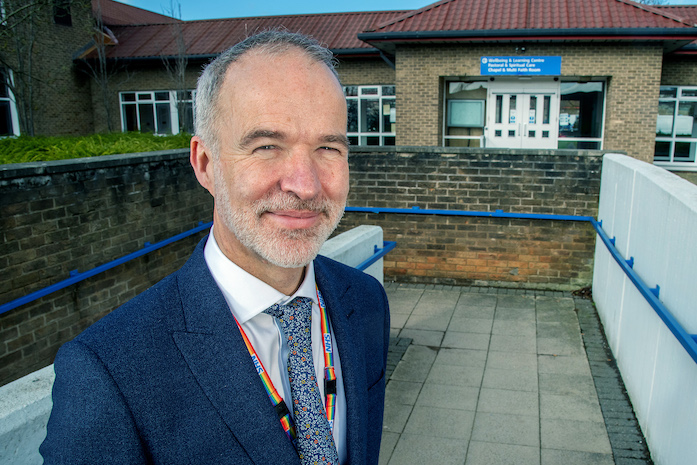
NHS bodies are now being asked to collaborate rather than compete. But top-down direction cannot foster genuine cooperation, West Yorkshire ICS chief Rob Webster tells MiP. Only through partnerships can health and care staff address the huge challenges they face.
“The idea of superhero leadership is dead: some things are just too heavy for Superman to pick up. An individual can never know more than, or be more powerful than, the collective,” says Rob Webster. “If that’s the model of leadership you want, you just become part of the problem, because it’s not how you collaborate to meet people’s mental, physical and social needs.”
Webster is CEO designate of West Yorkshire Health and Care Partnership (WYP), an integrated care system (ICS) whose members include 13 NHS trusts, six local authorities and five clinical commissioning groups (CCGs). This role puts him at the heart of public service delivery across the region – but not, he’s clear, at its head: all his experience tells him that hierarchical, top-down leadership cannot foster genuine collaboration. And he has a lot of experience.
He began his career with 16 years at the Department of Health, working initially as a statistician and later on national health policy, where he learned “the role of the centre and the system in driving improvements.” After a year at the Cabinet Office producing capability reviews, in 2007 he came across “an opportunity I couldn’t miss”: the chance to “apply all of that learning to a system, implement policy and create a really great organisation” as chief executive of NHS Calderdale Primary Care Trust.
In 2014 he was made chief executive of the NHS Confederation, and two years later moved to lead both South West Yorkshire Partnership NHS Foundation Trust, and West Yorkshire and Harrogate’s emerging sustainability and transformation partnership – the precursor to WYP. So his career has spanned Whitehall, NHS trusts, membership bodies and an ICS; and Webster has also experienced life from the service user’s perspective.
You’re in or you’re out
“My mum’s my dad’s main carer; my brother died by suicide; I’ve got a son with a learning disability,” he says: his son George, who has Down’s Syndrome, is a CBeebies presenter. “Patients and carers and families can see how the system works – or doesn’t,” he adds. “I understand what it feels like to be on the other end of services.”
Currently, says Webster, health outcomes for West Yorkshire’s people can be “pretty shocking”. WYP’s goal is to ditch “a system based on episodic care and focused on organisations”, in favour of integrated services built around individuals’ specific needs.
The partnership’s work is governed by “a clear set of principles,” he explains. “You can’t be an associate, you can’t partially sign up: you’re in it, or you’re not. We always use the data to make decisions, agreeing what the data tells us. We use the governance that exists to make decisions. And subsidiarity applies: we deal with issues as close to the person as possible.”
For the last six years, WYP has been bringing services together within its 52 neighbourhoods and primary care networks, improving care pathways for patients, and identifying successful local projects for wider roll-out, Webster says. “We’ve reconfigured services – vascular, stroke, learning disability services – on the basis of what’s the best model, not who wins or loses as an organisation. And organisations have willingly signed up, because they see it’s best for the individuals and creates a sustainable system – clinically, financially and operationally.” As a result, he adds, more of WYP’s members are in surplus, while receipts from capital and provider sustainability funding have increased.
A real sweet spot
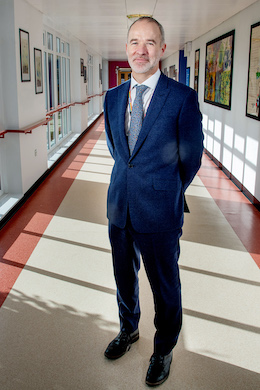 Rob Webster: “As a system that spends around £5 billion a year, we’re part of the supply chain. We’re employers. We’ve got organisations that can’t get people; we’ve got people who can’t get jobs. There’s a real sweet spot here.”
Rob Webster: “As a system that spends around £5 billion a year, we’re part of the supply chain. We’re employers. We’ve got organisations that can’t get people; we’ve got people who can’t get jobs. There’s a real sweet spot here.”
But WYP has wider goals, aiming to support local employment and economic development, he explains. “As a system that spends around £5 billion a year, we’re part of the supply chain. We’re employers. We’re part of the innovation of med-tech and health-tech in West Yorkshire.” he says. “We’ve got organisations that can’t get people; we’ve got people who can’t get jobs. There’s a real sweet spot here.”
ICSs aim to support such system-wide collaboration – but the transition carries risks, notes Webster. WYP has been successful “because the system is a partnership that supports the partners: they own it,” he says. The creation of narrower ‘Integrated Care Boards’ (ICBs) to take on CCGs’ commissioning work could marginalise some partnership members.
“By having an ICB, which is an organisation brought into that [partnership], we’re changing the dynamic – and this is one of the big risks,” he says. WYP’s solution is to “make sure that as much of the power and authority and money as possible” goes down to the conurbation level, with spending decisions made in the partnership’s five ‘places’.
The unions are also crucial partners, Webster adds. “Throughout the pandemic, staffside sat on silver command in my [previous] trust to get that insight; to ensure we’re making good choices,” he says. WYP has also been “working with staffside throughout all the changes, to keep them alongside us and give us feedback. It’s been invaluable.” And there’s “huge value” for individual managers in union membership, he adds: when things go wrong for people, “sometimes you might need a bit of help. Having the backing of a union, with all of its legal and other powers, is incredibly useful.”
That’s particularly true in turbulent times – and right now, Webster comments, the health and care system faces “double trouble”. Addressing WYP’s long-term goals has “got harder because of the pandemic: health inequalities have widened, early detection of cancer is harder because people aren’t coming forward. The economic impact in the North has been greater.” And meanwhile, “waiting times are back – so we have to address that. But we can’t address that at the expense of everything else, because we’ll be in a worse position.”
Old mindsets
To scale up elective surgery, he explains, providers must resolve post-op support, discharge arrangements and equality of access: “If our mindset is the old one – ‘Let’s do loads of activity: pile it high, sell it cheap, get on with it’ – we’ll treat a lot of people, but we might not treat the right people, we might not be able to discharge those people, and we might not be able to think about the things that cause them to be unwell in the first place.”
“There’s a mindset that says: the secretary of state says we need more activity in hospitals; NHS England are mandated to make sure that happens; they tell the regions what to do; the regions tell ICSs what to do; ICSs tell providers what to do; we get more activity in hospitals. But it ain’t going to work,” he adds. “So we need a system approach – and that’s the approach we’re taking.”
But this approach, he suggests, might be hampered by the government’s nascent plan to introduce academy-style reforms – intervening in struggling trusts, while handing the most successful greater freedoms. WYP’s acute and mental health trusts “aren’t competing; they’re collaborating around people’s needs,” says Webster. “They’ve started to share work; they’ve reconfigured services without an argument or referral to the secretary of state; they’ve backed each other in capital developments. As a result, we’ve seen services and the financial health of those organisations improve.”
So the goal is “shared leadership around a shared agenda” – and Webster warns that reforms could prove counterproductive. “The job isn’t about structure: it’s about improving outcomes and joining up care; it’s about tackling multimorbidity and deprivation. We do that by focusing on those things, and we can focus on those things if we’re not blindsided by structure,” he says. “As someone who’s abolished organisations and set organisations up from scratch, I understand structure. But I’m telling you quite clearly that the job is improving outcomes.”
Everybody works in a system
Meanwhile, Webster welcomes former defence chief Sir Gordon Messenger’s ongoing review of leadership in health and social care. What would he like to come out of the review? First, he replies, it should “reinforce that everybody works in a system – and that requires a set of leadership skills which are about collaboration.”
Second, Whitehall must adjust its own behaviours and systems to support collaborative leadership: “There’s as much change required at the government and national level – in all organisations, actually: the Care Quality Commission, NHS England, all that bit of the system – as there is at the frontline.”
Third, he advocates stronger collaboration between trusts to “support and encourage talent”. Under Andrew Lansley’s redundant NHS business model, trusts weren’t incentivised to “share staff, or do something for the good of the system”; indeed, the previous chief executive of health services regulator Monitor – now subsumed into NHS Improvement – “used to say there’s no such thing as the system.”
“Under that regime, it was impossible to have a talent pipeline,” he says. “But now we’re in a system of collaboration, and I’d really like us to be thinking about how we make sure we’ve got the right people with the right skills, and how we’re nurturing and developing them.”
Finally, Webster calls for action to create “a leadership that’s more representative of the communities we serve – so there are less white, middle-aged blokes like me!” Diversity “isn’t a weakness or an issue to be overcome: it’s a strength, and diversity of leadership brings better outcomes.”
Looking ahead, what other changes are required for WYP to make progress? More resources are needed to tackle “the wider determinants of health,” he replies – addressing poverty and joblessness, and boosting spending on “social care for adults, children, people with a learning disability: local government, in its broadest sense.” To improve people’s health over the long term, “funding for local government has got to address the elements of the system that haven’t benefited from the reforms that we [in the NHS] have, or the investment needed.”
The best and worst years
Meanwhile, the pandemic is set to broaden WYP’s own agenda. While its strategy is due a refresh, he says, “my suspicion is that the ten priorities we had before will still be the ten priorities – because inequalities have got worse, early diagnosis of cancer has got harder, the impact on people’s mental health has been substantial, etcetera. But alongside that, waiting and the workforce will be the critical issues that we need to address.” The partnership is a “people business”, he notes, and “every conversation” should start by considering the interests of staff, volunteers and carers.
These groups have had an arduous and traumatic pandemic – but for many, says Webster, it’s also been a period of growth and fulfilment: “Despite these being some of the worst years of our lives, in many ways they’ve also been some of the best years of our lives, in terms of the response that the health and care system has had to this crisis.” And over the coming period, ICSs have an opportunity to ensure that their staff are “able to deliver the kind of changes that we want to see: changes that improve outcomes, that address their drivers for why they come to work in the first place,” he says. “I genuinely think we can do that.”
Achieving those goals, though, will require a new form of health and care leadership. “Collaboration is harder than competition,” he says. “It’s difficult: you’re tough on the issues, you’re not tough on the people – but you’ve got to get results. This isn’t soft stuff.”
This approach to leadership is required at every level, Webster believes, from the neighbourhood to the national. And he has one further request of the country’s political and system leaders: “We need people to hold their nerve,” he says. “This is the right model. This is the right way of doing things. We’ve got to give it time, and we’ve got to back it to succeed.”
Related News
-
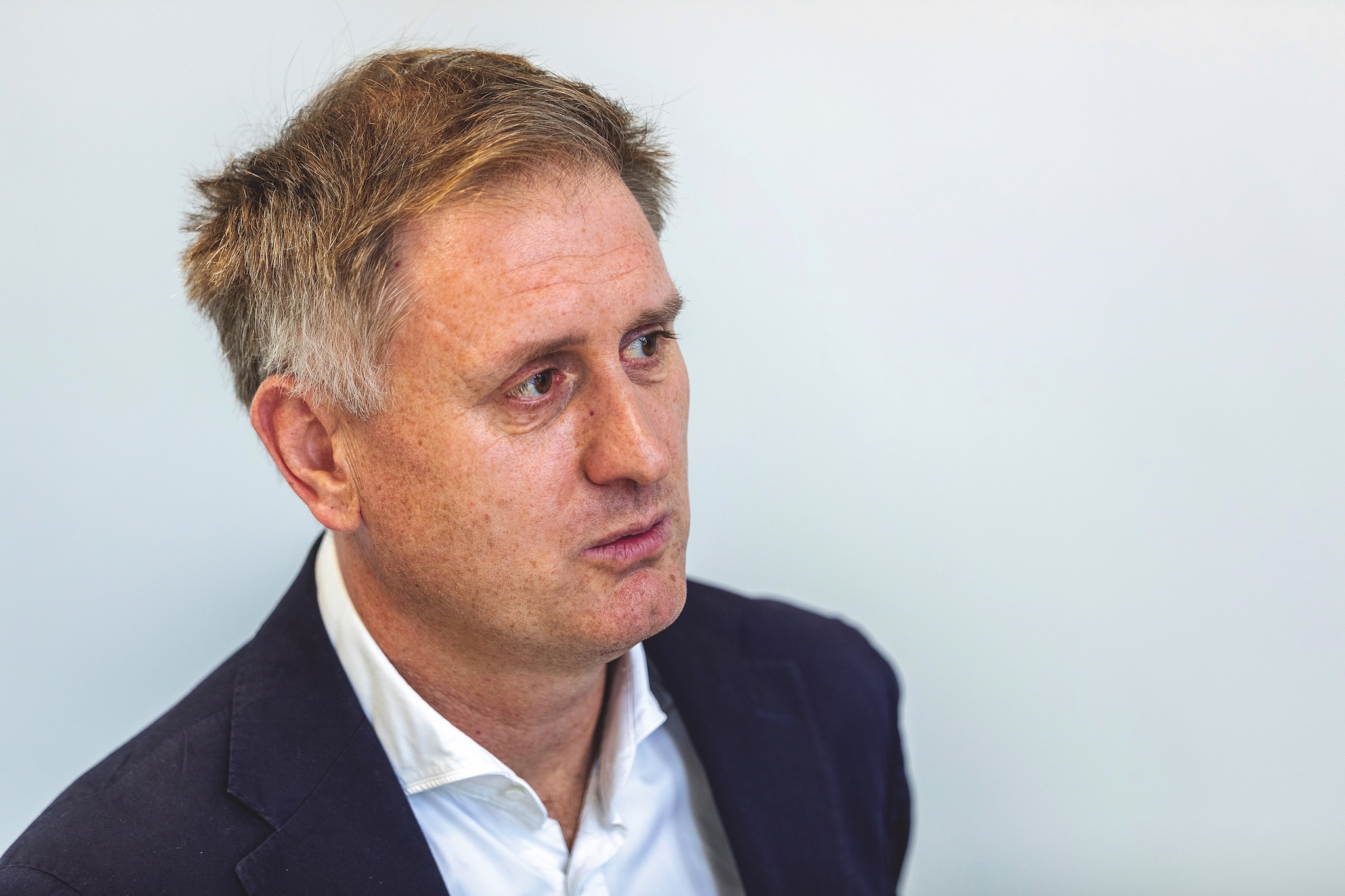
“Showing kindness and trust creates a virtuous circle – people respond well to that”
As chief executive of Suffolk and North East Essex, one of England’s most highly rated integrated care boards, Ed Garratt has pioneered a radically different approach to leadership – one based around kindness, trust and putting down deep roots in local communities. He talks to Healthcare Manager’s Matt Ross.
-
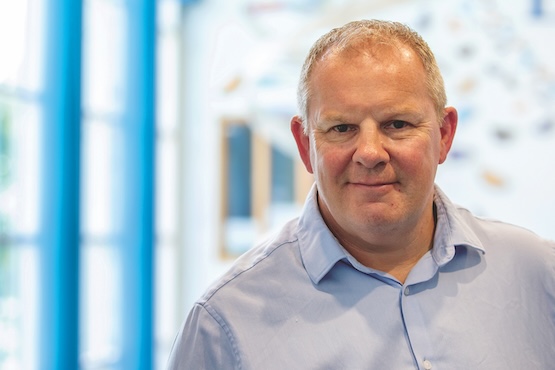
We need to give managers reasons to join the profession — not risks to avoid
Steve McManus’s work developing the leaders and managers the NHS needs for the 21st century has caught the eye of national leaders. The Royal Berkshire trust chief executive talks to Matt Ross about transforming services, developing leaders and the right way to regulate the management profession.
-
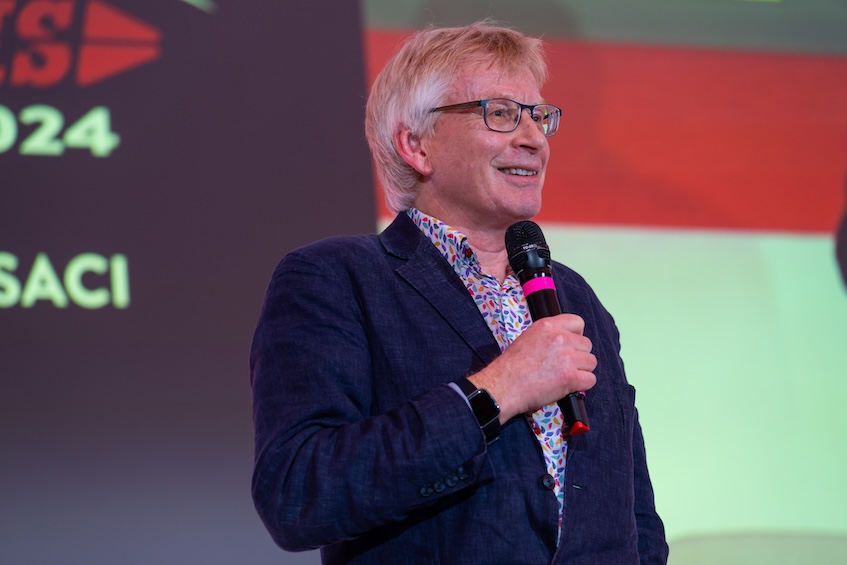
Interview: Dr Phil Hammond, doctor, comedian, health campaigner
Doctor, comedian, broadcaster, writer, health campaigner and politician manqué, Dr Phil Hammond is now drawing up a manifesto to rescue the NHS and boost the nation’s health. On the eve of a watershed general election for the UK, he spoke to Healthcare Manager’s Matt Ross.